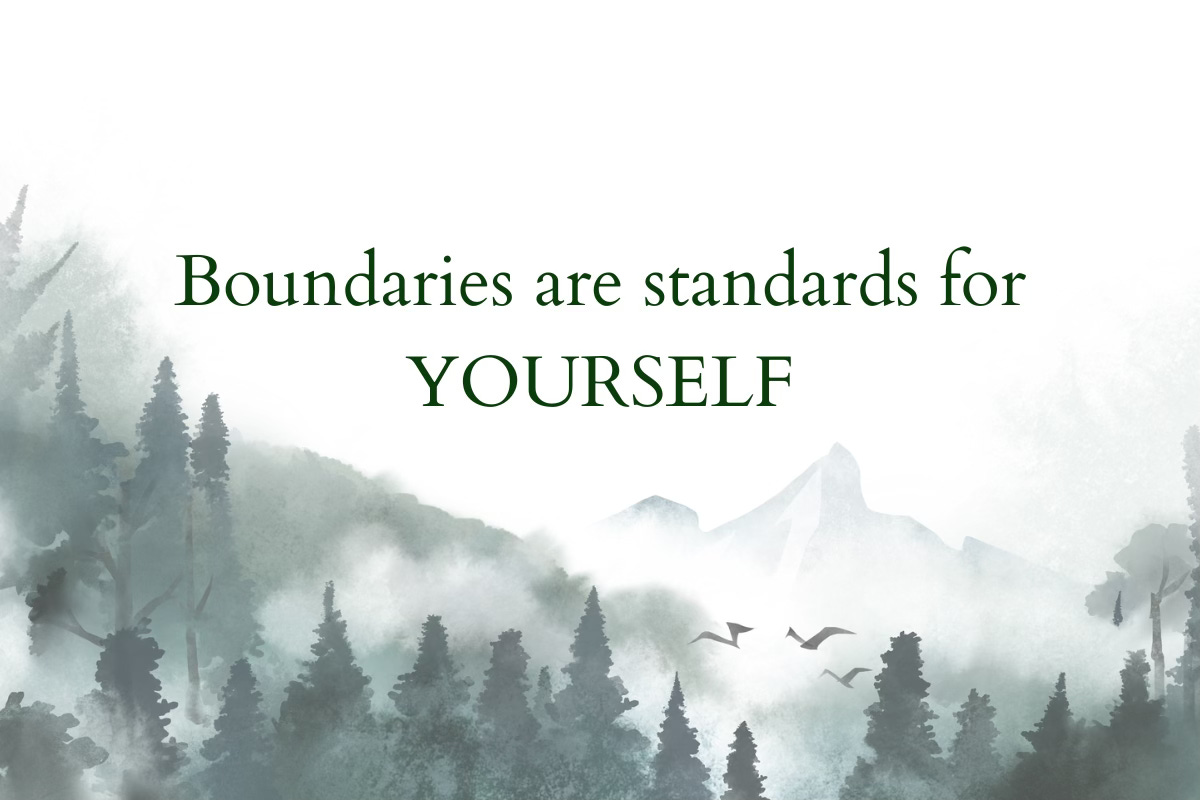From Boundaries to Discernment
Developing the vision to see what kind of care and connection can truly hold me and my wildness
Pop culture has claimed the word boundaries. Podcasts, books, and social media are full of takes on them — and that’s a good thing.
We need more conversations about boundaries. They are essential. But also, often misunderstood.
1. Boundaries as Control vs. Boundaries as Clarity
“You can’t talk to me like that.” → misunderstood
“If you speak to me that way, I’ll end the conversation.” → clear
Boundaries are standards for yourself. They govern your participation in relationship. They’re not demands — they’re decisions. And they’re only real if they’re actionable.
2. Boundaries as Distance vs. Boundaries as Intimacy
Boundaries don’t always mean cutting people off, withdrawing, or becoming unavailable. → misunderstood
Boundaries create the safety required for deeper connection, if that connection is possible.
Yes — cut someone off if they are consistently hurting you. But in many cases, it’s worth asking:
“Can I stay open without abandoning myself?”
That’s contained intimacy. That’s what real connection looks like when self-respect leads.
3. Boundaries as Punishment vs. Boundaries as Care
“I’m protecting my peace.” gets tossed around like moral high ground. But that kind of shielding and armouring is avoidance dressed as empowerment.
A true boundary sounds more like:
“I want this connection to work, and this is what I need to feel safe.”
That’s not punishment — that’s care with structure. A willingness to participate and serve love without losing self.
I didn’t grow up with boundaries. I had a sense of impropriety, sure — but like most kids, it was weighed against belonging, fitting in, and appeasing my parents. I had many instances where my boundaries were flat-out violated — before I even knew the word existed.
So yes, I’m still working on it. It’s still hard to know how you want to be treated. Harder still to speak it aloud to the people you love. Because the old scripts whisper:
“What if they leave? What if they reject me?”
We all have to reckon with those childhood blueprints — the ones that shaped how we love, protect, and stay in connection.
I love my father, but I’ve learned to keep distance in certain ways. That’s not coldness — that’s discernment. And that’s what I am sharpening now: the vision that sees what kind of care and connection can truly hold me and my wildness.




Great article Dan! Definitely an important topic that is difficult to navigate. You make some good distinctions of what it’s actually about vs how it can be perceived.